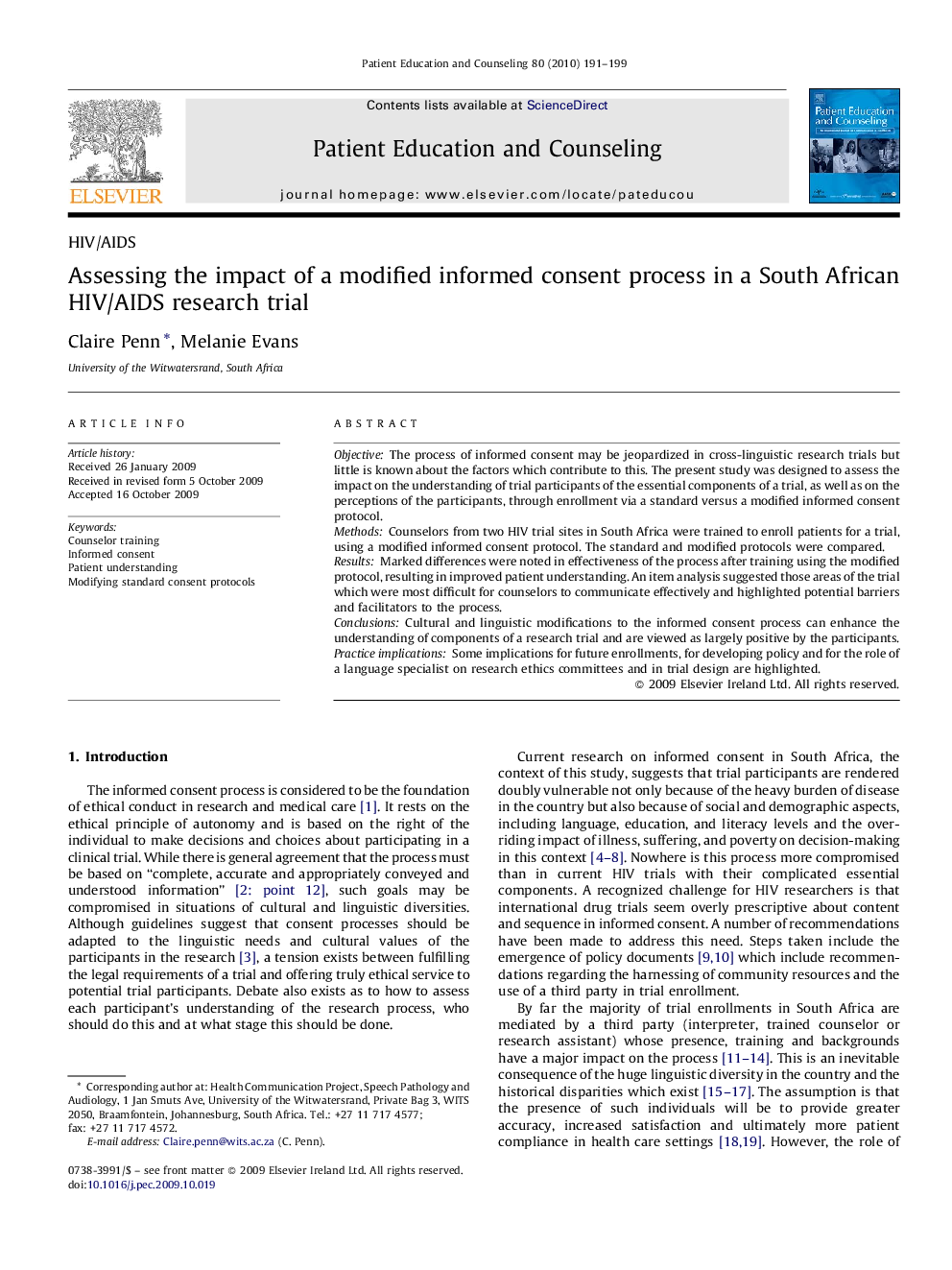| Article ID | Journal | Published Year | Pages | File Type |
|---|---|---|---|---|
| 3815482 | Patient Education and Counseling | 2010 | 9 Pages |
ObjectiveThe process of informed consent may be jeopardized in cross-linguistic research trials but little is known about the factors which contribute to this. The present study was designed to assess the impact on the understanding of trial participants of the essential components of a trial, as well as on the perceptions of the participants, through enrollment via a standard versus a modified informed consent protocol.MethodsCounselors from two HIV trial sites in South Africa were trained to enroll patients for a trial, using a modified informed consent protocol. The standard and modified protocols were compared.ResultsMarked differences were noted in effectiveness of the process after training using the modified protocol, resulting in improved patient understanding. An item analysis suggested those areas of the trial which were most difficult for counselors to communicate effectively and highlighted potential barriers and facilitators to the process.ConclusionsCultural and linguistic modifications to the informed consent process can enhance the understanding of components of a research trial and are viewed as largely positive by the participants.Practice implicationsSome implications for future enrollments, for developing policy and for the role of a language specialist on research ethics committees and in trial design are highlighted.
